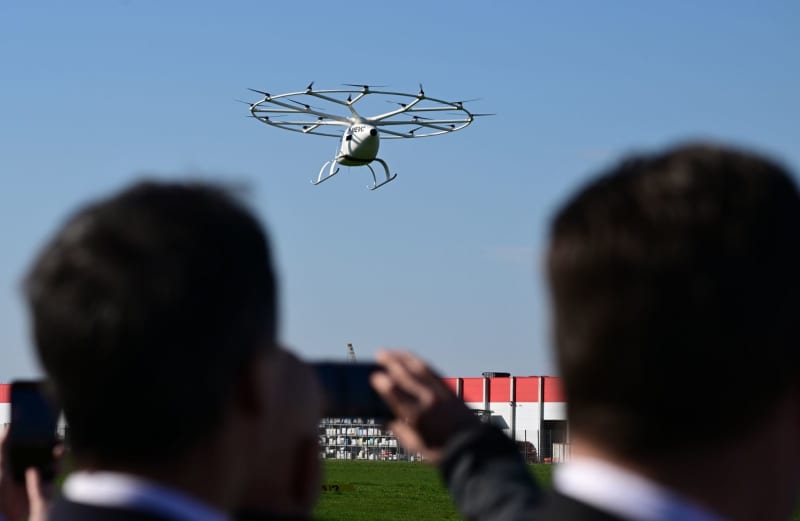New research shows that urban air transport (UAM) vehicles, such as electric air taxis that take off vertically, perform much worse than we might think in terms of travel times, costs and emissions.
Researchers from the German Leibniz Centre for European Economic Research (ZEW) in Mannheim have studied the results of eleven studies on unmanned aerial vehicles. They have shown that air taxis can hardly reduce travel times, while the costs and CO2 emissions are higher than those of electric cars.
The scientists concluded that unmanned aircraft could be particularly useful “for emergencies and for connecting remote areas.”
“Urban air mobility is often marketed as sustainable, fast and affordable,” says Anna Straubinger of ZEW. “However, our studies show that the actual benefits are very limited.”
Small contribution to decarbonization at its best
Electric air taxis may emit less CO2 than cars with a combustion engine, but they require more power than electric cars, the researchers say. They conclude that “they do not make a positive contribution to the energy transition in the transport sector.”
The analysis shows that the energy consumption of vertical take-off and landing aircraft is high compared to cars, public transport or bicycles. This means that unmanned aircraft can at most make a small contribution to the CO2 reduction of the transport system.
Air taxis also require specific take-off and landing sites, “resulting in wait times and travel distances for passengers.”
“If you take these factors into account, there is rarely any time saving, but the number of flight movements does increase significantly,” the researchers said.
15 times more expensive than taking a car
According to the scientists, air taxis are relatively expensive and therefore not suitable for the masses.
In the short to medium term, manufacturers and potential operators are aiming for a price of €5 ($5.50) per kilometer. According to Straubinger, an air taxi would be about 15 times more expensive than a private car.
Meanwhile, “the negative impacts, such as noise and visual disturbances in the air, affect everyone, including the likely large part of the population that will not use UAM,” the researcher said.
Straubinger is convinced that the aircraft offer real added value in emergency operations and for connecting remote areas.
“That is why we also expect higher public acceptance.”
A new technology ‘needs’ time’
A spokeswoman for Volocopter, a Bruchsal, Germany-based aircraft manufacturer that specializes in electric air taxis, said the aim of the technology is to “start the long road to decarbonizing the aviation industry” and provide customers in certain cities and markets with a safer, quieter and faster means of transportation.
The company focuses primarily on large cities with heavy traffic, such as Rome and Paris, where traffic jams are common.
According to the spokeswoman, a 2022 study on San Francisco suggests that a UAM system could ease traffic congestion in the metropolis.
Comparing unmanned aircraft to cars, buses and other conventional modes of transportation is not fair, she said, “because according to the laws of physics, flying always uses more energy than taxiing, especially during takeoff, hovering and landing.”
The space that an electric vehicle takes up on the road compared to a flying vehicle with the same number of passengers must also be taken into account, the spokeswoman said.
“This type of transportation is new and new technologies take time to gain widespread acceptance,” she said, adding that the company understands people’s concerns and continues to work to address those concerns.
Companies like Volocopter still do not have type approval from the European Aviation Safety Agency for the transport of persons.

